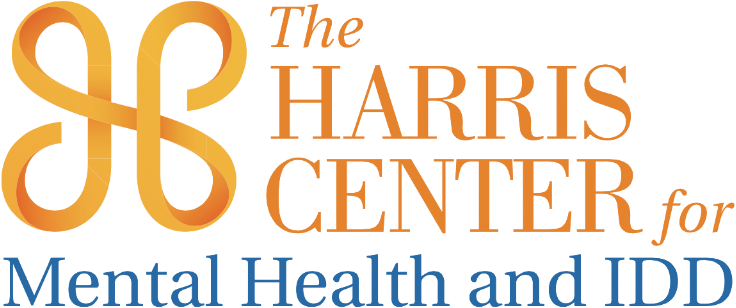
Whether it’s a rough day at work, an unexpected event impacting a loved one, or the stress of our health, anxiety impacts many of us every day. In fact, according to a 2022 survey by the Kaiser Family Foundation and CNN, 90% of the public believe there is a mental health crisis in the United States. The survey revealed that one-third of all adults reported feeling anxious either always or often in the past year.
"Anxiety is like a magnifying glass, making small worries feel like insurmountable obstacles. It's important to remember that anxiety doesn't define you and that there is support available to help you manage and overcome it,” said Dr. Luming Li, Chief Medical Officer of The Harris Center for Mental Health and IDD.
What is anxiety?
Anxiety is a natural and often adaptive response to stress or perceived threats. It's a feeling of fear, worry, or unease, typically about something with an uncertain outcome. While it's normal to experience occasional anxiety, such as before a big event or decision, anxiety disorders involve excessive, persistent, and uncontrollable feelings of anxiety that interfere with daily life.
What are the symptoms of anxiety?
Anxiety can manifest in various ways, both physically and emotionally. Physically, individuals with anxiety disorders may experience symptoms such as rapid heartbeat, sweating, trembling, and muscle tension. They may also have gastrointestinal issues like stomachaches or nausea. Emotionally, anxiety can manifest as feelings of apprehension, restlessness, irritability, and difficulty concentrating or controlling worry.
"When we're in a situation that triggers anxiety, our body can react in ways that seem exaggerated. Someone with an anxiety disorder may experience racing heart beats or strong physical responses such as shortness of breath,” said Dr. Li.
These symptoms can vary in intensity and frequency, depending on the individual and the specific anxiety disorder they may be experiencing.
What happens to our brains when we experience anxiety?
Anxiety is often described in terms of the hypothalamus-pituitary-adrenal (HPA) axis, which can become dysregulated. This means that your body's stress response system, including the release of hormones like cortisol and adrenaline, may become overly sensitive or reactive. As a result, you might experience a panic attack, where your body's response seems disproportionate to the actual threat or stimulus.
"When faced with anxiety triggers, our bodies can sometimes overreact, leading to responses that may seem out of proportion. For instance, individuals with obsessive-compulsive disorder may feel driven to perform specific rituals to alleviate their anxiety. Exposure therapy offers a structured approach to gradually confronting these fears, ultimately helping to readjust these responses and alleviate anxiety over time,” said Dr. Li.
What can we do when we experience anxiety?
When experiencing anxiety, it's essential to practice self-care and seek support. Techniques such as deep breathing, mindfulness, and progressive muscle relaxation can help manage immediate symptoms. It's also beneficial to maintain a healthy lifestyle with regular exercise, adequate sleep, and a balanced diet. Additionally, seeking professional help from a mental health provider, such as those at The Harris Center for Mental Health and IDD, can provide guidance and support tailored to your needs.
Seeking Help
The Harris Center offers a comprehensive approach to addressing anxiety, with licensed counselors available 24/7. If you or someone you know is struggling with anxiety, The Harris Center is there to help. Please call our crisis line at 713-970-7000.




